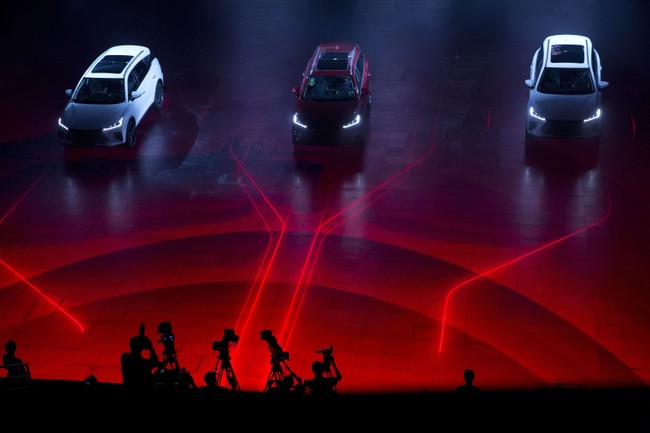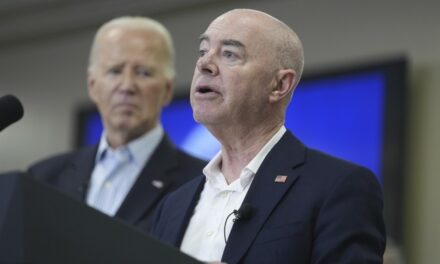We support our Publishers and Content Creators. You can view this story on their website by CLICKING HERE.

Back in May, President Biden made a big announcement of new tariffs on goods coming into the US from China. Singled out for the highest level of tariffs, at 100%, were Chinese EVs.
Advertisement
I just imposed a series of tariffs on goods made in China:
25% on steel and aluminum,
50% on semiconductors,
100% on EVs,
And 50% on solar panels.China is determined to dominate these industries.
I’m determined to ensure America leads the world in them.
— President Biden (@POTUS) May 14, 2024
Apparently, a 100% tariff on Chinese EVs isn’t enough. Today the administration announced a proposal that could effectively block the sale of all Chinese EVs.
The Biden administration on Monday proposed banning the import or sale of connected vehicles containing Chinese or Russian components, sounding an alarm about the potential for modern transport to be used as a tool for spying or to create domestic chaos during a conflict…
“Cars today have cameras, microphones, GPS tracking and other technologies connected to the internet. It doesn’t take much imagination to understand how a foreign adversary with access to this information could pose a serious risk to both our national security and the privacy of U.S. citizens,” said Commerce Secretary Gina Raimondo. “In an extreme situation, foreign adversaries could shut down or take control of all their vehicles operating in the United States all at the same time.”
There seems to be a bit of confused messaging taking place over whether this is economic protectionism or a national security decision. The Commerce Secretary said it was the latter.
Advertisement
Raimondo said Monday’s announcement was not a protectionist move, a charge made by Chinese critics.
“This is not about trade or economic advantage,” Raimondo said. “This is a strictly national security action.”
But at the same time, this looks like it’s part of a White House PR push that is all about helping Harris win the election.
The proposed ban comes on the same day that the White House announced a number of new initiatives aimed at supporting autoworkers, particularly aimed at the key battleground state of Michigan – a crucial state in President Joe Biden’s victory in 2020. Vice President Kamala Harris’ campaign believes Michigan is a must-win in November.
The other initiatives announced by the White House on Monday include $1 billion in financing for small- and medium-sized auto suppliers, a new pilot program to train workers in the state’s most populous county for jobs in the automobile supply chain, funding to support more training for workers to install electric vehicle chargers and another initiatives across the state.
The Chinese connected cars probably do represent a national security threat but it’s also true that Chinese EVs have the potential to upend the US auto market, something Elon Musk has been warning about for a while.
China has cracked the code on budget-priced, highly affordable EVs, while US and European manufacturers continue to struggle to release their own models. The BYD Seagull, for example, was the country’s bestselling vehicle in August, with about 190 miles of range and a sticker price of around $10,000. Even with a 100 percent tariff, the Seagull would still sell for a price much cheaper than most domestic made EVs.
US officials have expressed concern that allowing China to export EVs to the country would devastate domestic manufacturers — a sentiment backed by auto executives. Tesla CEO Elon Musk has said China would “demolish” the US auto industry without trade barriers — but then later reversed himself and said he opposed tariffs.
Advertisement
Musk reversed himself on tariffs because he has a major Tesla factory in China and can’t afford to be seen supporting tariffs. But his initial statement was right. If we allow a flood of Chinese EVs sold for under $20,000 in the US, the EV sales slump will end abruptly and US automakers, who are still several years behind Tesla and Chinese EV manufacturers, will be facing dire circumstances.

 Conservative
Conservative  Search
Search Trending
Trending Current News
Current News 







